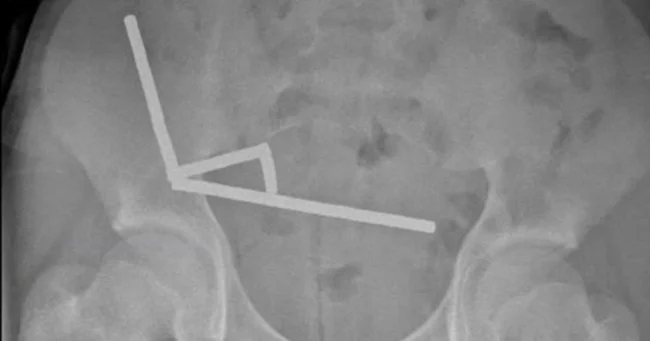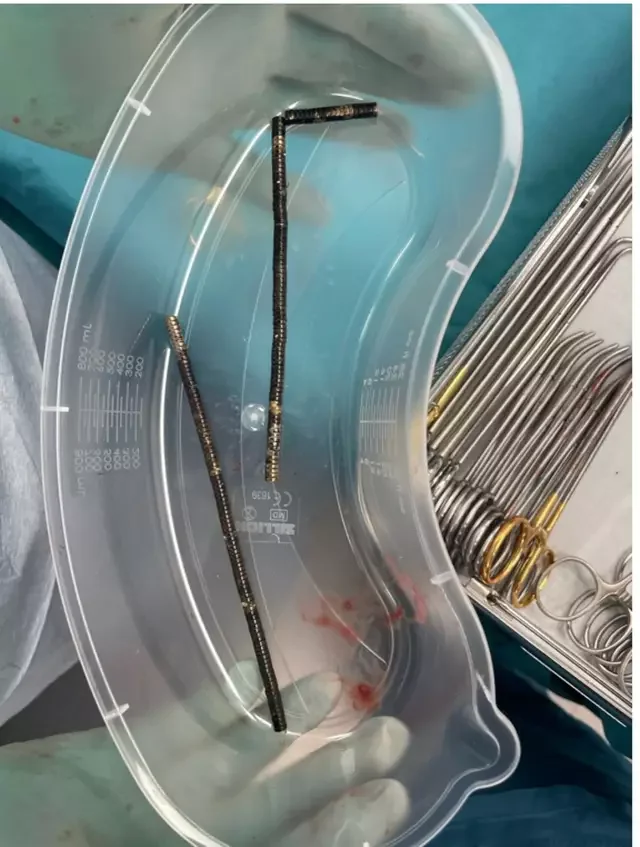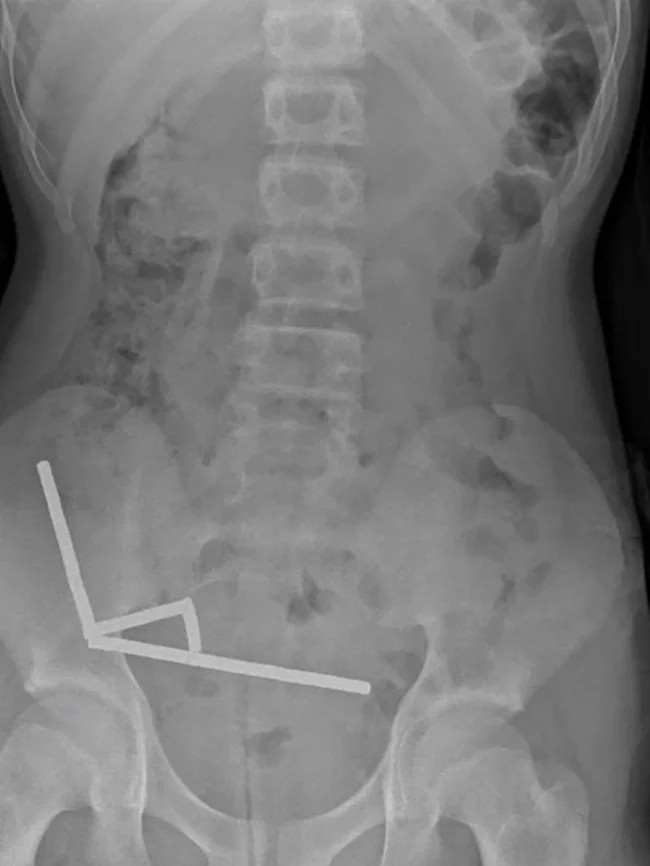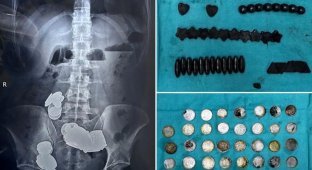Teenager swallowed 100 magnets and lost part of his intestines (3 photos)
Surgeons were stunned to discover that a teenager's abdominal pain was caused by over 100 powerful magnets. As a result, doctors at a hospital in Tauranga, New Zealand, performed emergency surgery and removed part of the 13-year-old's intestine. 
The boy suffered from pain for four days before seeking medical attention. He later admitted that he had swallowed 80-100 neodymium magnets about a week earlier. He told doctors he purchased them from the overseas online store Temu. X-rays revealed that magnets, banned in New Zealand since 2013, had formed "four linear chains" in the intestine.
The doctors who prepared the report—Binura Lekamalage, Lucinda Duncan-Were, and Nicola Davis—noted: "During surgery, multiple chains of magnets were found in the small intestine and cecum. These had merged in the right lower quadrant, compressing the tissue and causing necrosis."
Prolonged exposure to magnets disrupted blood flow and oxygen supply to the tissue, leading to tissue death. 
"This case clearly demonstrates the dangers magnets pose to children and highlights the risks posed by the online marketplace to our child population," doctors say. "Despite strict product safety laws in New Zealand, there are significant challenges in regulating products purchased from overseas online platforms. This remains a significant issue."
Temu has launched an investigation into the incident. The company expressed regret and wished the boy a speedy recovery.
"At this stage, we are unable to confirm whether the magnets were purchased through Temu or identify the specific product. Our teams are reviewing the relevant listings to ensure full compliance with local safety requirements. All non-compliant products will be removed, and we will take decisive action against sellers who violate our platform policies or local regulations." 
Medical experts warn that swallowing magnets can lead to serious consequences, including necrosis, perforation, obstruction, fistulas, and sepsis.
"Treatment most often requires surgery, which can lead to future complications such as adhesive intestinal obstruction, abdominal hernia, and chronic pain," the report states.






























